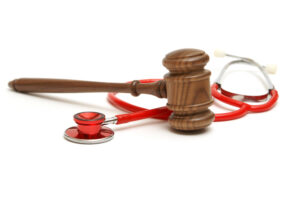 Medical treatment is supposed to make us feel better and live healthier lives. Unfortunately, a doctor’s actions can be wrong, leaving us with the opposite outcome. When a health care professional’s attention worsens our situation, a lawsuit may be in order. There are quite a few situations that qualify as medical malpractice. As a medical malpractice lawyer explains, here is an analysis of medical malpractice and a few of the most common reasons that merit going to court.
Medical treatment is supposed to make us feel better and live healthier lives. Unfortunately, a doctor’s actions can be wrong, leaving us with the opposite outcome. When a health care professional’s attention worsens our situation, a lawsuit may be in order. There are quite a few situations that qualify as medical malpractice. As a medical malpractice lawyer explains, here is an analysis of medical malpractice and a few of the most common reasons that merit going to court.
Diagnostic Errors
Some physical conditions, such as cancer, need to be treated as soon as possible. Failure to identify a growing tumor can result in a much more complicated, not to mention deadlier, scenario than would otherwise be the case. Perhaps the individual analyzing your charts lacks experience or the knowledge to interpret them accurately. Another explanation is that the person in charge of this task is simply lazy or doesn’t care. Test results are sometimes lost or mislabeled, setting the stage for tragedy.
Drug Errors
Prescribing the wrong medication bears severe consequences. Taking an incorrect medicine or the right one at an inappropriate dosage may be disastrous. Everything from a mild allergic reaction to death could be the outcome of a physician’s illegible handwriting. A careless pharmacist is similarly liable. Patients receiving the wrong prescriptions are at risk for everything from a slip and fall to full-blown drug addiction.
Childbirth Errors
Plenty can go wrong when a newborn enters the world. All it takes is an overly zealous tug to harm an infant so severely that there are lifelong consequences. Prenatal care is another aspect of pregnancy that remains vital. A doctor who fails to recognize fetal distress or perform a C-section when necessary may be responsible for severe problems. After a mother has given birth, a nurse might accidentally drop a baby, causing trauma. Shaking an infant could have a similarly intense outcome.
Surgical Errors
It does not matter whether the surgery you undergo is necessary or elective. Surgeons are obligated to provide the best service possible. The expectation is that they are always attentive during an operation. Shockingly, evidence exists that some misbehave while patients are under the knife. Additionally, a lack of seriousness can result in working on the wrong part of the body, operating on the wrong patient, or leaving tools inside someone.
You deserve restitution for harm caused by a doctor’s inadequate care. Victims of medical malpractice can speak with a legal team to organize the details of their case and hold a physician responsible.

